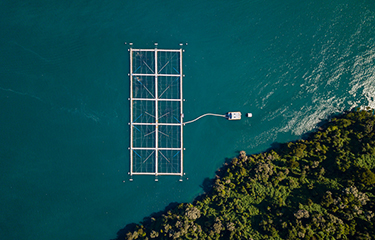The head of Chile’s Undersecretary of Fisheries and Aquaculture (Subpesca), Alicia Gallardo, has outlined to the senate the government’s plans to relocate some salmon farming concessions, with technical projects approved in the Magallanes region in order to remove operations located inside the Alberto de Agostini National Park.
According to the presentation, made in the senate by Subpesca Head of the Aquaculture Division Eugenio Zamorano, Subpesca estimates that some 500 salmon concessions should be relocated, out of a total of 1,320 that the industry operates, with plans to merge some farming centers.
To date, there are a total of 270 applications in process: 74 in the Los Lagos region, 183 in Aysén, and 13 in Magallanes. So far, there are nine relocation requests whose technical projects have been approved by Subpesca and are in the final review stage by the Armed Forces, local publication SalmonExpert reported, citing sources from Subpesca.
Total aquaculture space is expected to be reduced by 18 percent, with larger centers being formed but with more distance between them. The undersecretary said that priority will be given to moving sites near the coastline and with water recirculation problems. At the same time, Subpesca will continue reviewing sites or groups of salmon concessions that meet the characteristics for possible relocation. The idea is to have fewer, larger, and more distant concessions to improve sustainability while facilitating the inspection of the sector.
As Subpesca considers relocating concessions, Chile’s senate is considering a bill that proposes to halt new salmon farming concessions in the Los Lagos, Aysén, and Magallanes regions until at least 2030.
The bill was presented last year by parliamentarians Ximena Órdenes and Alfonso de Urresti, "taking into special consideration the fragility of ecosystems, in a climate change scenario that is having effects on the environment," according to the wording of the proposed legislation.
Further, in mid-December a group of representing three indigenous peoples - Mapuche Huilliche, Kawésqar, and Yagán – presented a case before the Inter-American Court of Human Rights, saying the state of Chile has violated indigenous communities’ human and environmental rights by permitting the installation and expansion of salmon farming.
As reported by local newspaper El Divisadero, the meeting took place within the framework of the Commission’s 182nd session and was attended by members of the three indigenous groups, together with an environmental law and human rights lawyer and the oceans coordinator at Greenpeace.
The salmon farming industry has increased its production and territorial extension considerably during the last decades, going from producing 30,000 metric tons (MT) in 1990 to more than 1.04 million MT in 2020, the claimants said, citing data from Subpesca and the national fisheries and aquaculture service, Sernapesca.
As such, "in the last 30 years the Chilean salmon farming industry has sustained an average growth rate of 117 percent per year, where one can fathom the pressure that this activity exerts on ecosystems and particularly, on indigenous territories," they reportedly said. "The constant advance of the salmon industry towards the south of Chile, and specifically in territories inhabited by indigenous peoples, has meant damage to valuable ecosystems of fjords and channels, which have supported indigenous people communities for millennia."
Within the Chilean government itself, those claims are soon to fall on much more sympathetic ears. Gabriel Boric, the 35-year-old leftist candidate for the presidency of Chile, was elected to lead the country for the next four years on Sunday, 19 December, running on a liberal platform that includes embracing the indigenous cultures found in the country and their rights and claims.
Boric, who will take office on 11 March 2022, has also questioned the environmental sustainability of the country’s USD 4 billion (EUR 3.5 billion) salmon-farming industry. He has previously called for a review of salmon farming concessions, particularly those in national parks; providing more funds and regulatory strength for sector watchdogs including the environment regulation agency (SMA), Subpesca and Sernapesca; and conducting an evaluation of the environmental and economic impact of aquaculture in the southern macrozone, especially in terms of water quality, biological diversity, and sea floors.
Salmon industry players have expressed hope that the president-elect will work to find middle ground for the sector to continue advancing in sustainable growth, including jobs for the southern part of the country and feeding the world with a protein that has a much smaller economic footprint than traditional meat. However, some Chilean companies have not always practiced sustainable operations despite claims to the contrary.
For example, in September, Chile’s SMA fined salmon farmer Nova Austral CLP 1.23 billion (USD 1.56 million, EUR 1.32 million) for inadequate mortality and solid-waste management at its Aracena 19 grow-out center, located inside the Alberto de Agostini National Park in Punta Arenas. It is the highest fine ever levied for environmental rule-breaking in the Magallanes region.
The company also saw its Aquaculture Stewardship Council logo license stripped following misreported mortality in 2019, an event that saw the ousting of its CEO.
Photo courtesy of Alexander Gold/Shutterstock







